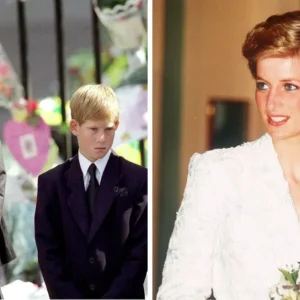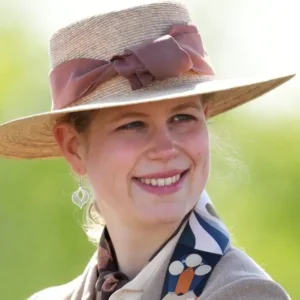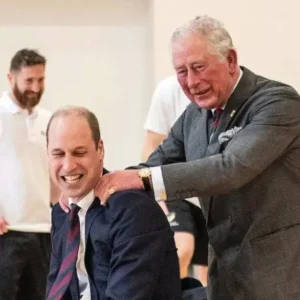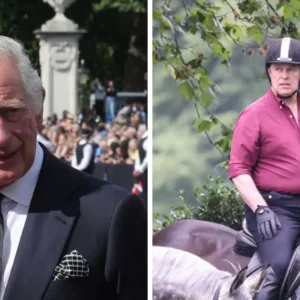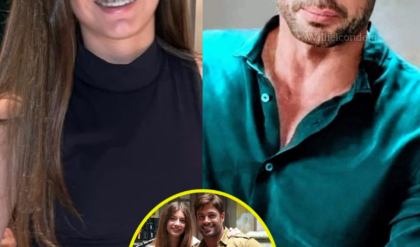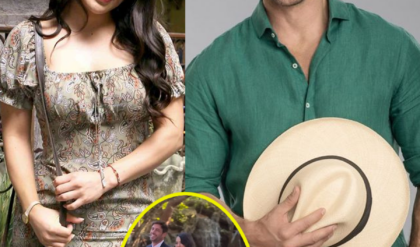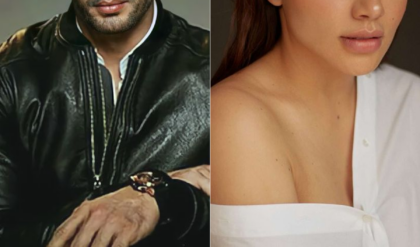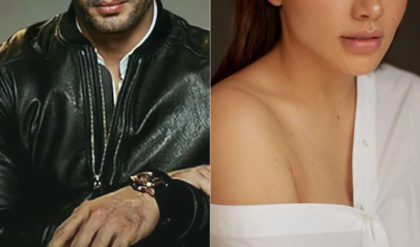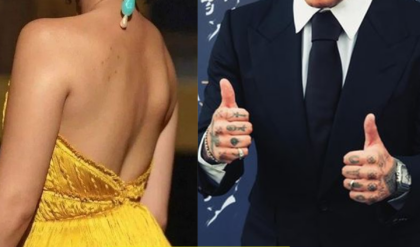“People laugh that there is a college class being taught about her and I go, ‘There should be,’” the director tells Variety during a roundtable interview at Karlovy Vary Film Festival. “What she is doing, the way she is doing it… Nobody has ever done this before. The amount of control she has taken over. She is relentless.”
He continues, “These stories about doing the whole show on a treadmill, just to make sure she can do it?! It’s a success story and I am fascinated by that. [Screenwriter] David Koepp took his daughter to see the show and said, ‘You cannot believe what it’s like to be there.’ I would go if I could. There aren’t any tickets! But I watched the film.”
The Eras Tour is also on his mind when developing new work.
“I have been thinking about a project in which I analyze large scale, cooperative endeavors that work. Airports. Why do airports work? Or AA?” he says. “You look at the Taylor Swift concert, at this whole tour and it works. So why can’t we figure out Syria or any other conflict?”
“Humor is a great delivery system for an idea and nothing lights up the brain like music, so this project better be funny and there should be some musical component as a way to open people up. I want you to come out on the other side after you see it, and feel different.”
In the meantime, he will echo Swift’s 2008 hit with the upcoming movie “Black Bag.”
“It’s a love story,” he says.
“It’s about two people in the intelligence community and it’s very intimate. When we were working on [ghost movie] ‘Presence,’ David Koepp said: ‘It might be interesting to make ‘Who’s Afraid of Virginia Woolf’ where George and Martha are in the intelligence community.’ What would that be like? A month later, he had a draft.”
Cate Blanchett and Michael Fassbender have been tapped to star, joined by Regé-Jean Page, Marisa Abela, Naomie Harris, Pierce Brosnan and “Furiosa’s” Tom Burke.
“It’s a very specific take on people who also have complex personal lives. It was terrifying, because there is a 12-page dinner sequence and nobody even moves from their seats. That kept me up.”
But don’t expect any risqué scenes.
“People confuse physical sexuality with love and romance. [They think that] if you are making a sexy movie, there has to be sex. Well… no,” he says. “We all know how that part works. What’s different is everything that led up to that and everything that comes after that. I am trying to think of the last time I shot two actors simulating sex and I just find it ridiculous and impossible. Nobody looks good. The other day, talking about a project, a writer said: ‘And then there is this underwater sequence.’ Have we met?! I hate them, they are boring as hell. I feel the same way about sex scenes.”
At Karlovy Vary to present “Kafka” and its recut version “Mr. Kneff” during “The Wish to Be a Red Indian: Kafka and Cinema” retrospective, Soderbergh had time to look back at past work. He got rid of some of it, too.
“I just burnt 44 years’ worth of notebooks and journals. I needed to dispense with the past. It was very cathartic,” he confesses. Interestingly enough, an old “urban musical set in Indianapolis” survived the purge.
Made after the success of “Sex, Lies, and Videotape,” “Kafka” wasn’t well received when it first premiered.
“I wasn’t happy with it either. It wasn’t a normal biopic – it makes no attempt to portray ‘the real Franz Kafka.’ That’s what I liked about it and people went: ‘It doesn’t tell us anything about Kafka!’ No, it doesn’t. But it was a necessary step for me and I learnt a lot.”
News
MEGHAN MARKLE’S LATEST EFFORT UNDER FIRE: IS IT JUST SELF-PROMOTION?
Meghan Markle’s newest venture is facing criticism long before production has even begun! “The problem is I sometimes think Meghan can’t let go and wants it to be about her…” royal expert Rupert Bell dished on the “Kinsey Schofield Unfiltered” podcast. SOURCE:…
‘GOOD KING HARRY’: PRINCESS DIANA FELT THAT FUTURE ROYAL TELL-ALL SCRIBE WOULD MAKE ‘A BETTER’ MONARCH THAN PRINCE WILLIAM
Diana, Princess of Wales, once nicknamed her youngest son “Good King Harry,” due to his “general gusto” compared to the real future monarch and his elder brother, Prince William. “William doesn’t want to be king and I worry about that,” royal author Angela Levin wrote in…
FORGING HER OWN PATH: LADY LOUISE WINDSOR TO AVOID ‘ROYAL BURDEN’ AS SHE FOCUSES ON UNIVERSITY LIFE
Lady Louise Windsor, 20, and 16th in line to the British throne has decided to create her own path in life after previously contemplating a life of service to the Crown. “I think it’s probably too early to tell,” GBN’s royal correspondent Cameron…
“Royal Restructure Stumbles: Princess Anne’s Injury Puts Strain on Slimmed-Down Monarchy”
Prince William has reportedly taken King Charles III’s “slimmed-down monarchy” initiative to the extreme. But as the next king readies to slim down the Crown even more than his dad, a “severe warning” has been issued by some royal analysts when it comes…
FORTUNE FAVORS THE BOLD: KING CHARLES TO UNLEASH MONEY-MAKING STREAM AT ROYAL LODGE ONCE HE KICKS PRINCE ANDREW OUT
King Charles III is reportedly set to start a rental money-making stream once he finally boots his younger brother, Prince Andrew, from the Royal Lodge near Windsor Castle. “Rental of £1million a year is not far-fetched for a house of that size…
Jemele Hill Unleashes Furious Rant Claiming Caitlin Clark Receives Different Treatment From Media Compared To Black Players
Jemele and Caitlin Clark (Photo by Leon Bennett/Getty Images) (Photo by Andy Lyons/Getty Images) Jemele Hill has a serious issue with Caitlin Clark, but it’s not from something she did or said, but from the media who covers her. Caitlin Clark, the…
End of content
No more pages to load

